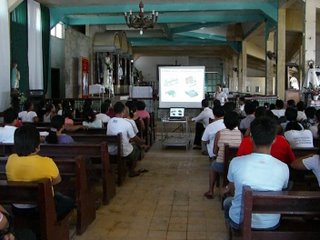The law that favors urban poor
Urban Development and Housing Act of 1992 (Republic Act 7279) was signed into law by the then President Corazon C. Aquino on 24 March 1992. Four days later, the complete text of which was published simultaneously in two news broadsheets: Malaya and Manila Chronicle. UDHA became effective on 29 March 1992, and since then, the issue on housing for the poor was never the same again.
The said law, on one hand, fosters peopleБ─≥s participation in the so-called Б─°urban development process.Б─² For instance, it gives reason for the urban poor and homeless citizens to get involved in housing and resettlement issues. Why? Because the law simply guarantees security of land tenure for the socialized housing beneficiaries. Decent shelter is what UDHA hopes to provide among the underprivileged.
On the other hand, UDHA recognizes the important role of all local government units as implementors of socialized housing program. This is decentralization of power at its best. In other words, the LGUs will spell the success of the program depending on how they manage important details on social housing, livelihood programs, transport system, ecology, population, among others.
Besides, UDHA draws the private sector (i.e. developers) to participate in national shelter program by tapping its financial resources in exchange for several interesting incentives. Incentives range from simplification of requirements for developers to exemptions from several taxes. UDHA requires developers of proposed subdivision projects to set aside 20 percent of the total subdivision area for socialized housing.
The said law also acknowledges the participation of several government agencies, like National Housing Authority, Housing and Land Use Regulatory Board; Housing and Urban Development Coordinating Council; National Mapping Resource Information Authority; Land Management Bureau, Department of Environment and Natural Resources; National Statistics Office; Department of Finance; Department of Trade and Industry; Department of Transportation and Communications; Presidential Commission for the Urban Poor; Philippine National Police; and others.
UDHA was originally written in English when both House Bill No. 34310 and Senate Bill No. 234 were consolidated into a law. No official Filipino translation of the law was released by the administration. But in this reference compilation, a Filipino translation written by Bobby Yatco is included. It is hoped that by doing so, the readers would somehow grasp salient provisions of the law. If by chance the translation inadvertently creates misunderstanding or doubt on the meaning of the text, the readers are advised to consult the English version. The UDHA English versionБ─≥s original meaning shall prevail.
To paraphrase Article 3, Chapter 1 of the Civil Code of the Philippines, ignorance of UDHA exempts no one from following it. Read, therefore, and be armed.
(from Partnership of Philippine Support Service Agencies, INC.)

 The Technical Assistance Organization of the Phils. (TAO-Phils.), an NGO composed of young architects and engineers, presents their findings about the dangers, challenges and suitability of living in Tanza as an alternative relocation. This meeting takes place in San Lorenzo Ruiz Parish last September 7. Various groups, NGO's and PO's attended.
The Technical Assistance Organization of the Phils. (TAO-Phils.), an NGO composed of young architects and engineers, presents their findings about the dangers, challenges and suitability of living in Tanza as an alternative relocation. This meeting takes place in San Lorenzo Ruiz Parish last September 7. Various groups, NGO's and PO's attended.

 Mang Ano discusses the alternative housing in Tanza, Navotas in view of the impending demolition in R-10.
Mang Ano discusses the alternative housing in Tanza, Navotas in view of the impending demolition in R-10.
